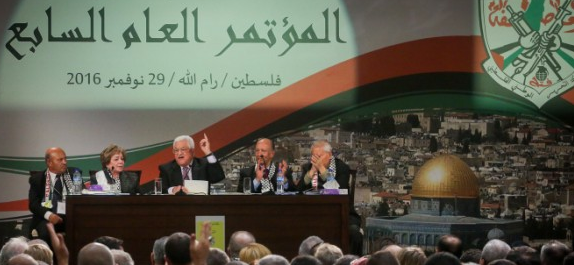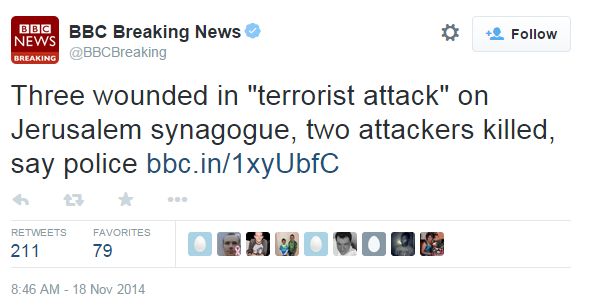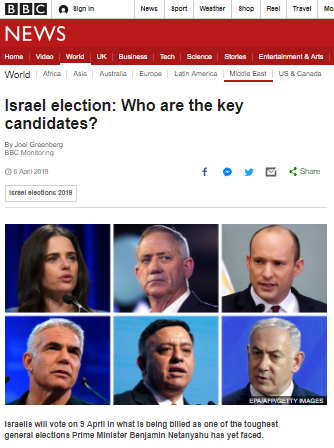Back in late October, the BBC Jerusalem bureau’s Yolande Knell produced an article concerning the question of who will succeed Mahmoud Abbas in his various roles. In that report, Knell speculated that:
“One potential post-Abbas scenario would see the division of his titles: President, head of Fatah, and Chairman of the Palestine Liberation Organisation (PLO).
If different individuals took these jobs it would allow for a more collective political leadership.”
One might therefore have expected that the BBC would be interested in the story of Abbas’ unanimous reelection as head of the Fatah party at its long overdue seventh congress held this week, especially – as the NYT reported, among others – given the less than “collective” circumstances.

“Under fire at home and abroad, President Mahmoud Abbas of the Palestinian Authority moved on Tuesday to solidify his decade-long hold on power with a party conference that had already been purged of most of his opponents.
The carefully selected delegates wasted little time in formally re-electing Mr. Abbas as the leader of Fatah, the party that controls the Palestinian Authority in the West Bank. “Everybody voted yes,” a spokesman for Fatah, Mahmoud Abu al-Hija, told reporters who had not been allowed into the conference hall for the decision. […]
Some Palestinian activists had wondered whether Mr. Abbas would use the conference to give up at least one of the three titles he holds — leader of Fatah, leader of the Palestine Liberation Organization and president of the Palestinian Authority. But he made clear on Tuesday that he would not. […]
Missing from the conference were Palestinian leaders and activists who had fallen out with Mr. Abbas, including those affiliated with Muhammad Dahlan, a former security chief who has lived in exile since 2011.
Allies of Mr. Dahlan, and even some Palestinians who were only thought to be his allies, have been purged from Fatah or arrested, and competing factions have engaged in violent clashes. Diana Buttu, a former Palestinian official who is now a critic of Mr. Abbas, named 10 party figures who had been ousted recently.
“To me, the story is who is not at the conference,” said Grant Rumley, a scholar at the Foundation for Defense of Democracies in Washington and a co-author of a forthcoming biography of Mr. Abbas. “This conference will formalize the split within his own party.””
Abbas’ reelection was covered (together with additional reporting on the Fatah congress) on the BBC Arabic website. However, the corporation’s English-speaking audiences – who already suffer from a chronic lack of information concerning internal Palestinian affairs – have to date not been provided with any coverage of that story and its background or Abbas’ subsequent reiteration of his refusal to recognise Israel as the Jewish state.
Related Articles:
BBC’s Knell omits back stories in portrayal of PA succession
BBC News continues to under-report internal Palestinian politics




